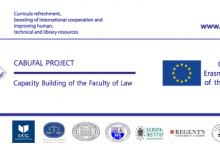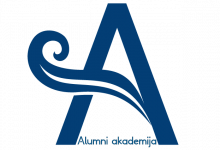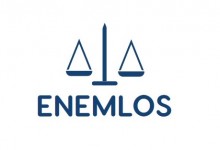Faculty of Law / CRIMINALISTIC COMBATING CONTEMPORARY FORMS OF CRIMINALITY / INTERNATIONAL CRIMINAL POLICE COOPERATION
| Course: | INTERNATIONAL CRIMINAL POLICE COOPERATION/ |
| Course ID | Course status | Semester | ECTS credits | Lessons (Lessons+Exercises+Laboratory) |
| 8994 | Izborni | 1 | 6 | 2+0+0 |
| Programs | CRIMINALISTIC COMBATING CONTEMPORARY FORMS OF CRIMINALITY |
| Prerequisites | |
| Aims | |
| Learning outcomes | |
| Lecturer / Teaching assistant | |
| Methodology |
| Plan and program of work | |
| Preparing week | Preparation and registration of the semester |
| I week lectures | |
| I week exercises | |
| II week lectures | |
| II week exercises | |
| III week lectures | |
| III week exercises | |
| IV week lectures | |
| IV week exercises | |
| V week lectures | |
| V week exercises | |
| VI week lectures | |
| VI week exercises | |
| VII week lectures | |
| VII week exercises | |
| VIII week lectures | |
| VIII week exercises | |
| IX week lectures | |
| IX week exercises | |
| X week lectures | |
| X week exercises | |
| XI week lectures | |
| XI week exercises | |
| XII week lectures | |
| XII week exercises | |
| XIII week lectures | |
| XIII week exercises | |
| XIV week lectures | |
| XIV week exercises | |
| XV week lectures | |
| XV week exercises |
| Student workload | |
| Per week | Per semester |
| 6 credits x 40/30=8 hours and 0 minuts
2 sat(a) theoretical classes 0 sat(a) practical classes 0 excercises 6 hour(s) i 0 minuts of independent work, including consultations |
Classes and final exam:
8 hour(s) i 0 minuts x 16 =128 hour(s) i 0 minuts Necessary preparation before the beginning of the semester (administration, registration, certification): 8 hour(s) i 0 minuts x 2 =16 hour(s) i 0 minuts Total workload for the subject: 6 x 30=180 hour(s) Additional work for exam preparation in the preparing exam period, including taking the remedial exam from 0 to 30 hours (remaining time from the first two items to the total load for the item) 36 hour(s) i 0 minuts Workload structure: 128 hour(s) i 0 minuts (cources), 16 hour(s) i 0 minuts (preparation), 36 hour(s) i 0 minuts (additional work) |
| Student obligations | |
| Consultations | |
| Literature | |
| Examination methods | |
| Special remarks | |
| Comment |
| Grade: | F | E | D | C | B | A |
| Number of points | less than 50 points | greater than or equal to 50 points and less than 60 points | greater than or equal to 60 points and less than 70 points | greater than or equal to 70 points and less than 80 points | greater than or equal to 80 points and less than 90 points | greater than or equal to 90 points |
Faculty of Law / CRIMINALISTIC COMBATING CONTEMPORARY FORMS OF CRIMINALITY / PROCEDURES IN CRIMINALISTICS
| Course: | PROCEDURES IN CRIMINALISTICS/ |
| Course ID | Course status | Semester | ECTS credits | Lessons (Lessons+Exercises+Laboratory) |
| 8989 | Obavezan | 1 | 8 | 2+1+0 |
| Programs | CRIMINALISTIC COMBATING CONTEMPORARY FORMS OF CRIMINALITY |
| Prerequisites | |
| Aims | |
| Learning outcomes | After passing this exam, it is expected that the student will be able to: define the concept, types, roles and tasks of criminal procedure; explain the basic principles of criminal procedure; define, describe and recognize the institutes and entities that, through adopted mechanisms of operation, participate in the implementation of criminal procedures, and all that through the prism of criminal methodology; analyze the complete factual state of standard and non-standard, direct and indirect crime procedures through legal norms of substantive and procedural law. |
| Lecturer / Teaching assistant | |
| Methodology |
| Plan and program of work | |
| Preparing week | Preparation and registration of the semester |
| I week lectures | |
| I week exercises | |
| II week lectures | |
| II week exercises | |
| III week lectures | |
| III week exercises | |
| IV week lectures | |
| IV week exercises | |
| V week lectures | |
| V week exercises | |
| VI week lectures | |
| VI week exercises | |
| VII week lectures | |
| VII week exercises | |
| VIII week lectures | |
| VIII week exercises | |
| IX week lectures | |
| IX week exercises | |
| X week lectures | |
| X week exercises | |
| XI week lectures | |
| XI week exercises | |
| XII week lectures | |
| XII week exercises | |
| XIII week lectures | |
| XIII week exercises | |
| XIV week lectures | |
| XIV week exercises | |
| XV week lectures | |
| XV week exercises |
| Student workload | |
| Per week | Per semester |
| 8 credits x 40/30=10 hours and 40 minuts
2 sat(a) theoretical classes 0 sat(a) practical classes 1 excercises 7 hour(s) i 40 minuts of independent work, including consultations |
Classes and final exam:
10 hour(s) i 40 minuts x 16 =170 hour(s) i 40 minuts Necessary preparation before the beginning of the semester (administration, registration, certification): 10 hour(s) i 40 minuts x 2 =21 hour(s) i 20 minuts Total workload for the subject: 8 x 30=240 hour(s) Additional work for exam preparation in the preparing exam period, including taking the remedial exam from 0 to 30 hours (remaining time from the first two items to the total load for the item) 48 hour(s) i 0 minuts Workload structure: 170 hour(s) i 40 minuts (cources), 21 hour(s) i 20 minuts (preparation), 48 hour(s) i 0 minuts (additional work) |
| Student obligations | |
| Consultations | |
| Literature | |
| Examination methods | |
| Special remarks | |
| Comment |
| Grade: | F | E | D | C | B | A |
| Number of points | less than 50 points | greater than or equal to 50 points and less than 60 points | greater than or equal to 60 points and less than 70 points | greater than or equal to 70 points and less than 80 points | greater than or equal to 80 points and less than 90 points | greater than or equal to 90 points |
Faculty of Law / CRIMINALISTIC COMBATING CONTEMPORARY FORMS OF CRIMINALITY / CRIMINAL INVESTIGATIONS MANAGEMENT
| Course: | CRIMINAL INVESTIGATIONS MANAGEMENT/ |
| Course ID | Course status | Semester | ECTS credits | Lessons (Lessons+Exercises+Laboratory) |
| 8990 | Obavezan | 1 | 8 | 2+1+0 |
| Programs | CRIMINALISTIC COMBATING CONTEMPORARY FORMS OF CRIMINALITY |
| Prerequisites | |
| Aims | |
| Learning outcomes | After passing this exam, it is expected that the student will be able to: define the concept, types, roles and tasks of criminal investigations; explain basic principles of the criminal investigation process; apply, plan and organize the management process as a method of crime; use extra means of proof in criminal investigations; assess the performances and evaluation of officers as a means of governance in criminal investigations. |
| Lecturer / Teaching assistant | |
| Methodology |
| Plan and program of work | |
| Preparing week | Preparation and registration of the semester |
| I week lectures | |
| I week exercises | |
| II week lectures | |
| II week exercises | |
| III week lectures | |
| III week exercises | |
| IV week lectures | |
| IV week exercises | |
| V week lectures | |
| V week exercises | |
| VI week lectures | |
| VI week exercises | |
| VII week lectures | |
| VII week exercises | |
| VIII week lectures | |
| VIII week exercises | |
| IX week lectures | |
| IX week exercises | |
| X week lectures | |
| X week exercises | |
| XI week lectures | |
| XI week exercises | |
| XII week lectures | |
| XII week exercises | |
| XIII week lectures | |
| XIII week exercises | |
| XIV week lectures | |
| XIV week exercises | |
| XV week lectures | |
| XV week exercises |
| Student workload | |
| Per week | Per semester |
| 8 credits x 40/30=10 hours and 40 minuts
2 sat(a) theoretical classes 0 sat(a) practical classes 1 excercises 7 hour(s) i 40 minuts of independent work, including consultations |
Classes and final exam:
10 hour(s) i 40 minuts x 16 =170 hour(s) i 40 minuts Necessary preparation before the beginning of the semester (administration, registration, certification): 10 hour(s) i 40 minuts x 2 =21 hour(s) i 20 minuts Total workload for the subject: 8 x 30=240 hour(s) Additional work for exam preparation in the preparing exam period, including taking the remedial exam from 0 to 30 hours (remaining time from the first two items to the total load for the item) 48 hour(s) i 0 minuts Workload structure: 170 hour(s) i 40 minuts (cources), 21 hour(s) i 20 minuts (preparation), 48 hour(s) i 0 minuts (additional work) |
| Student obligations | |
| Consultations | |
| Literature | |
| Examination methods | |
| Special remarks | |
| Comment |
| Grade: | F | E | D | C | B | A |
| Number of points | less than 50 points | greater than or equal to 50 points and less than 60 points | greater than or equal to 60 points and less than 70 points | greater than or equal to 70 points and less than 80 points | greater than or equal to 80 points and less than 90 points | greater than or equal to 90 points |
Faculty of Law / CRIMINALISTIC COMBATING CONTEMPORARY FORMS OF CRIMINALITY / SPECIAL INVESTIGATIVE METHODS
| Course: | SPECIAL INVESTIGATIVE METHODS/ |
| Course ID | Course status | Semester | ECTS credits | Lessons (Lessons+Exercises+Laboratory) |
| 8991 | Obavezan | 1 | 8 | 2+1+0 |
| Programs | CRIMINALISTIC COMBATING CONTEMPORARY FORMS OF CRIMINALITY |
| Prerequisites | |
| Aims | |
| Learning outcomes | After passing this exam, it is expected that the student will be able to: highlight organized crime, manifestation areas of organized crime and define transnational criminal organizations; establish standardization criteria of special investigative methods and norms for their use; determine criminal offenses that may be ordered secret surveillance measures in the Montenegrin legislation; differentiate measures of secret observations, penetration measures into criminal groups, audio-visual surveillance measures and measures of covert operations; prepare, plan and manage special investigative methods; design procedural and criminal contents through special investigative methods in order to counter organized crime. |
| Lecturer / Teaching assistant | |
| Methodology |
| Plan and program of work | |
| Preparing week | Preparation and registration of the semester |
| I week lectures | |
| I week exercises | |
| II week lectures | |
| II week exercises | |
| III week lectures | |
| III week exercises | |
| IV week lectures | |
| IV week exercises | |
| V week lectures | |
| V week exercises | |
| VI week lectures | |
| VI week exercises | |
| VII week lectures | |
| VII week exercises | |
| VIII week lectures | |
| VIII week exercises | |
| IX week lectures | |
| IX week exercises | |
| X week lectures | |
| X week exercises | |
| XI week lectures | |
| XI week exercises | |
| XII week lectures | |
| XII week exercises | |
| XIII week lectures | |
| XIII week exercises | |
| XIV week lectures | |
| XIV week exercises | |
| XV week lectures | |
| XV week exercises |
| Student workload | |
| Per week | Per semester |
| 8 credits x 40/30=10 hours and 40 minuts
2 sat(a) theoretical classes 0 sat(a) practical classes 1 excercises 7 hour(s) i 40 minuts of independent work, including consultations |
Classes and final exam:
10 hour(s) i 40 minuts x 16 =170 hour(s) i 40 minuts Necessary preparation before the beginning of the semester (administration, registration, certification): 10 hour(s) i 40 minuts x 2 =21 hour(s) i 20 minuts Total workload for the subject: 8 x 30=240 hour(s) Additional work for exam preparation in the preparing exam period, including taking the remedial exam from 0 to 30 hours (remaining time from the first two items to the total load for the item) 48 hour(s) i 0 minuts Workload structure: 170 hour(s) i 40 minuts (cources), 21 hour(s) i 20 minuts (preparation), 48 hour(s) i 0 minuts (additional work) |
| Student obligations | |
| Consultations | |
| Literature | |
| Examination methods | |
| Special remarks | |
| Comment |
| Grade: | F | E | D | C | B | A |
| Number of points | less than 50 points | greater than or equal to 50 points and less than 60 points | greater than or equal to 60 points and less than 70 points | greater than or equal to 70 points and less than 80 points | greater than or equal to 80 points and less than 90 points | greater than or equal to 90 points |
Faculty of Law / CRIMINALISTIC COMBATING CONTEMPORARY FORMS OF CRIMINALITY / CRIMINAL IDENTIFIKATION
| Course: | CRIMINAL IDENTIFIKATION/ |
| Course ID | Course status | Semester | ECTS credits | Lessons (Lessons+Exercises+Laboratory) |
| 8996 | Izborni | 2 | 6 | 2+0+0 |
| Programs | CRIMINALISTIC COMBATING CONTEMPORARY FORMS OF CRIMINALITY |
| Prerequisites | |
| Aims | |
| Learning outcomes | |
| Lecturer / Teaching assistant | |
| Methodology |
| Plan and program of work | |
| Preparing week | Preparation and registration of the semester |
| I week lectures | |
| I week exercises | |
| II week lectures | |
| II week exercises | |
| III week lectures | |
| III week exercises | |
| IV week lectures | |
| IV week exercises | |
| V week lectures | |
| V week exercises | |
| VI week lectures | |
| VI week exercises | |
| VII week lectures | |
| VII week exercises | |
| VIII week lectures | |
| VIII week exercises | |
| IX week lectures | |
| IX week exercises | |
| X week lectures | |
| X week exercises | |
| XI week lectures | |
| XI week exercises | |
| XII week lectures | |
| XII week exercises | |
| XIII week lectures | |
| XIII week exercises | |
| XIV week lectures | |
| XIV week exercises | |
| XV week lectures | |
| XV week exercises |
| Student workload | |
| Per week | Per semester |
| 6 credits x 40/30=8 hours and 0 minuts
2 sat(a) theoretical classes 0 sat(a) practical classes 0 excercises 6 hour(s) i 0 minuts of independent work, including consultations |
Classes and final exam:
8 hour(s) i 0 minuts x 16 =128 hour(s) i 0 minuts Necessary preparation before the beginning of the semester (administration, registration, certification): 8 hour(s) i 0 minuts x 2 =16 hour(s) i 0 minuts Total workload for the subject: 6 x 30=180 hour(s) Additional work for exam preparation in the preparing exam period, including taking the remedial exam from 0 to 30 hours (remaining time from the first two items to the total load for the item) 36 hour(s) i 0 minuts Workload structure: 128 hour(s) i 0 minuts (cources), 16 hour(s) i 0 minuts (preparation), 36 hour(s) i 0 minuts (additional work) |
| Student obligations | |
| Consultations | |
| Literature | |
| Examination methods | |
| Special remarks | |
| Comment |
| Grade: | F | E | D | C | B | A |
| Number of points | less than 50 points | greater than or equal to 50 points and less than 60 points | greater than or equal to 60 points and less than 70 points | greater than or equal to 70 points and less than 80 points | greater than or equal to 80 points and less than 90 points | greater than or equal to 90 points |
Faculty of Law / CRIMINALISTIC COMBATING CONTEMPORARY FORMS OF CRIMINALITY / CRIMINAL PROFILING
| Course: | CRIMINAL PROFILING/ |
| Course ID | Course status | Semester | ECTS credits | Lessons (Lessons+Exercises+Laboratory) |
| 8992 | Obavezan | 2 | 7 | 2+1+0 |
| Programs | CRIMINALISTIC COMBATING CONTEMPORARY FORMS OF CRIMINALITY |
| Prerequisites | |
| Aims | |
| Learning outcomes | After passing this exam, it is expected that the student will be able to: define and explain the basic concepts and theories in the psychology of crime; explain the basic concepts and principles of crime profiling; apply the acquired knowledge in detection and investigation of criminal offenses. |
| Lecturer / Teaching assistant | |
| Methodology |
| Plan and program of work | |
| Preparing week | Preparation and registration of the semester |
| I week lectures | |
| I week exercises | |
| II week lectures | |
| II week exercises | |
| III week lectures | |
| III week exercises | |
| IV week lectures | |
| IV week exercises | |
| V week lectures | |
| V week exercises | |
| VI week lectures | |
| VI week exercises | |
| VII week lectures | |
| VII week exercises | |
| VIII week lectures | |
| VIII week exercises | |
| IX week lectures | |
| IX week exercises | |
| X week lectures | |
| X week exercises | |
| XI week lectures | |
| XI week exercises | |
| XII week lectures | |
| XII week exercises | |
| XIII week lectures | |
| XIII week exercises | |
| XIV week lectures | |
| XIV week exercises | |
| XV week lectures | |
| XV week exercises |
| Student workload | |
| Per week | Per semester |
| 7 credits x 40/30=9 hours and 20 minuts
2 sat(a) theoretical classes 0 sat(a) practical classes 1 excercises 6 hour(s) i 20 minuts of independent work, including consultations |
Classes and final exam:
9 hour(s) i 20 minuts x 16 =149 hour(s) i 20 minuts Necessary preparation before the beginning of the semester (administration, registration, certification): 9 hour(s) i 20 minuts x 2 =18 hour(s) i 40 minuts Total workload for the subject: 7 x 30=210 hour(s) Additional work for exam preparation in the preparing exam period, including taking the remedial exam from 0 to 30 hours (remaining time from the first two items to the total load for the item) 42 hour(s) i 0 minuts Workload structure: 149 hour(s) i 20 minuts (cources), 18 hour(s) i 40 minuts (preparation), 42 hour(s) i 0 minuts (additional work) |
| Student obligations | |
| Consultations | |
| Literature | |
| Examination methods | |
| Special remarks | |
| Comment |
| Grade: | F | E | D | C | B | A |
| Number of points | less than 50 points | greater than or equal to 50 points and less than 60 points | greater than or equal to 60 points and less than 70 points | greater than or equal to 70 points and less than 80 points | greater than or equal to 80 points and less than 90 points | greater than or equal to 90 points |
Faculty of Law / CRIMINALISTIC COMBATING CONTEMPORARY FORMS OF CRIMINALITY / EVIDENCE PROVISION
| Course: | EVIDENCE PROVISION/ |
| Course ID | Course status | Semester | ECTS credits | Lessons (Lessons+Exercises+Laboratory) |
| 8993 | Obavezan | 2 | 7 | 2+1+0 |
| Programs | CRIMINALISTIC COMBATING CONTEMPORARY FORMS OF CRIMINALITY |
| Prerequisites | |
| Aims | To develop student competencies for a critical understanding and proper application of evidence collection rules in criminal proceedings, as well as relevant procedures for discovering, presenting, fixing, and using evidence in criminal proceedings. |
| Learning outcomes | Understanding of basic concepts related to evidence in criminal proceedings, including: significance, classification of evidence, the burden of proof, the subject of evidence, the basis of evidence, and the means of evidence; Knowledge of procedural principles relevant to evidentiary actions; Critical analysis of the degree of conviction necessary to determine facts in criminal proceedings; Ability to identify and apply individual means of evidence, including indications, statements from the accused, witness statements, expert statements, as well as measures of procedural compulsion for evidence collection. |
| Lecturer / Teaching assistant | Andreja Mihailovic, PhD |
| Methodology | Lectures, exercises, consultations, debates. |
| Plan and program of work | |
| Preparing week | Preparation and registration of the semester |
| I week lectures | Semester preparation and enrollment, introduction to the course and academic obligations. |
| I week exercises | |
| II week lectures | General considerations on evidence in criminal proceedings (concept, significance, and classification of evidence, the subject of evidence, the basis of evidence, and the means of evidence). |
| II week exercises | |
| III week lectures | The facts that are proved in criminal proceedings, proving, the degree of conviction in which facts must be established in criminal proceedings |
| III week exercises | |
| IV week lectures | Procedural principles related to acts of proving. |
| IV week exercises | |
| V week lectures | Individual means of evidence (indications — direct and indirect proving). |
| V week exercises | |
| VI week lectures | Midterm exam |
| VI week exercises | |
| VII week lectures | Criminal profiling, criminal interview, polygraph testing, forensic linguistics |
| VII week exercises | |
| VIII week lectures | Witness statement — criminal profiling, criminal interview, presentation for recognition; expert statement — selection and competence of experts. |
| VIII week exercises | |
| IX week lectures | Scene examination — handling objects and traces in function of their evidential credibility. |
| IX week exercises | |
| X week lectures | Documentation as evidence, specifics of electronic evidence and their security. |
| X week exercises | |
| XI week lectures | Measures of procedural compulsion for evidence and object collection with the goal of establishing facts. |
| XI week exercises | |
| XII week lectures | Practical class. |
| XII week exercises | |
| XIII week lectures | Final exam. |
| XIII week exercises | |
| XIV week lectures | Supplementary teaching and makeup exam period |
| XIV week exercises | |
| XV week lectures | |
| XV week exercises |
| Student workload | |
| Per week | Per semester |
| 7 credits x 40/30=9 hours and 20 minuts
2 sat(a) theoretical classes 0 sat(a) practical classes 1 excercises 6 hour(s) i 20 minuts of independent work, including consultations |
Classes and final exam:
9 hour(s) i 20 minuts x 16 =149 hour(s) i 20 minuts Necessary preparation before the beginning of the semester (administration, registration, certification): 9 hour(s) i 20 minuts x 2 =18 hour(s) i 40 minuts Total workload for the subject: 7 x 30=210 hour(s) Additional work for exam preparation in the preparing exam period, including taking the remedial exam from 0 to 30 hours (remaining time from the first two items to the total load for the item) 42 hour(s) i 0 minuts Workload structure: 149 hour(s) i 20 minuts (cources), 18 hour(s) i 40 minuts (preparation), 42 hour(s) i 0 minuts (additional work) |
| Student obligations | Students are required to attend classes, participate in debates, and complete the midterm and final exam. |
| Consultations | |
| Literature | Drago Radulović: Criminal Procedure Law, Podgorica, 2009; Criminal Procedure Code Drago Radulović, Commentary on the Criminal Procedure Code of Montenegro, Podgorica, 2009, Milan Škulić: Criminal Procedure Law General Part, Belgrade Law Faculty: Official Gazette, 2007. Stanko Bejatović: Criminal Procedure Law, Belgrade: Modern Administration, 2003. David Johnston, Glenn Hutton: Blackstones Police Manual. Volume 2. Evidence and Procedure: 2005, Oxford: Oxford University Press, 2005. John M. Scheb, John M. Scheb II: Criminal Law and Procedure, Belmont, CA: Thomson/Wadsworth, 2005 Paul B. Weston, Kenneth M. Wells: Criminal Investigation Basic Perspectives, Upper Saddle River, N.J.: Prentice Hall,1997. Charles R. Swanson, Neil C. Chamelin, Leonard Territo: Criminal Investigation, Boston: McGraw-Hill, cop. 2003 |
| Examination methods | Forms of knowledge assessment and grading: - Colloquim – 40 points - Debate participation – 10 points - Final exam – 50 points |
| Special remarks | |
| Comment |
| Grade: | F | E | D | C | B | A |
| Number of points | less than 50 points | greater than or equal to 50 points and less than 60 points | greater than or equal to 60 points and less than 70 points | greater than or equal to 70 points and less than 80 points | greater than or equal to 80 points and less than 90 points | greater than or equal to 90 points |











